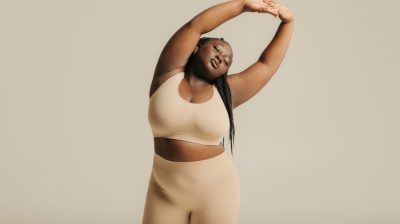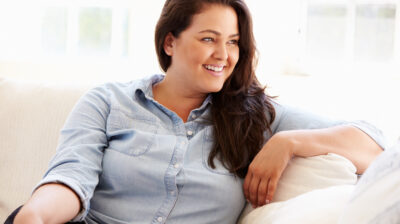Body image and body positivity
Rían writes about the movement toward body positivity

The pressure to conform to the beauty norms perpetuated by the media has been ever present. In the past it’s been through magazines, TV shows or overly produced music videos – and it still is to a certain extent – but since the rise of the internet, social media has become flooded with images of dramatic before and after weight loss pictures, “thinspo” blogs, thigh gaps, scantily clad celebs baring their perfectly chiselled abs for all to see – and aspire to.
Growing up as a young person, especially as a young woman, there is huge pressure to look a certain way and to keep up with current trends. From a young age you are told that your worth as a human being is dependent on how your body looks or how much it weighs. Femininity is defined by how tall and slender you are, masculinity by how lean and strong you are. And that can greatly affect your mental health, self esteem and your body image, especially as a young person trying to figure out who you are. I’ve struggled with this in the past myself, restricting myself of a meal because it would (in my head) bring me one step closer to a lower number on the scale when really I was depriving myself of fuel for my body and mind. This culture is insidious, prompting you to constantly compare yourself to others sometimes leading to unsafe behaviours to get to that perfect body at any cost.
But with the rise of perfected body imagery consisting of mostly photoshopped slim – white – able bodied beauties arriving on our Facebook and Instagram feeds, in the past few years a new movement has emerged to counteract that.
Body Positivity
So, what is body positivity? At it’s simplest it’s the idea that everybody, regardless of size/shape/gender/colour, has a body that should be embraced. Individuals may also have their own personal definition that is unique to them and their own experiences. Throughout life your body is going to change, it’s gonna get bigger, it’ll get smaller, it’ll change in shape, your weight will fluctuate and just because it might not reflect the picture perfect bodies that are in the media it doesn’t mean that your body is less deserving of love. After all, if everybody in the world looked the same, the world would be pretty bland. Our quirks are what make us individuals and those quirks should be embraced rather than changed or hidden.
Here’s a brilliant explainer from Bustle.
Over the past couple years, the body positivity movement has grown hugely. A quick search online will bring up thousands of pictures, videos and blog posts from people embracing their own stories and experiences. Even celebrities have gotten in on it, with well known figures such as Sam Smith, Chris Pratt, Danielle Brooks, Gina Rodriguez and Alicia Keys being quoted on their own feelings around body image and the expectation to look a particular way.
I particularly love these two YouTube videos, two discussions around body image and how they affect both men and women.
- Self Esteem & Body Image | That’s What He Said
- Beauty & Body Image | That’s What She Said
Although body positivity in it’s definition is inclusive, the movement has been criticised for its lack of representation of people of colour, those with disabilities and trans bodies.
I asked a few friends what they do during times when they don’t feel happy with their body. Some of the things that helped them deal with days when they weren’t feeling so great about how they looked included:
- Using distractions or having something to focus on
- Wearing their favourite outfit, something they feel good & comfortable in
- Going for a walk or doing some exercise
- Meeting with friends
- Surround himself with happy things (a pet, hot chocolate)
- Remind themselves that their “body is not everything”
- Wait it out
Now all that being said, when it’s been so ingrained into you to compare yourself to others it’s easier said than done to just … well, stop. Speaking to others, their responses varied but all of them had one common theme, that even though they may try to be body positive or to create a healthy body image for themselves, it was difficult to get away from what you’ve been told is supposed to be a “good body”.
Learning to love and embrace yourself is a process. To have compassion towards yourself and where you are at now is most important, but it’s so hard to do – we’re all our own toughest critics. Worse case scenario, if you can’t do that right now, there’s a lot to be said for faking it until you make it.
Know that if you are overwhelmed, if these thoughts and feelings become too much, it’s okay to reach out for help – whether that’s talking to a trusted friend or family member or contacting an organisation like Bodywhys – you don’t need to deal with things alone.





